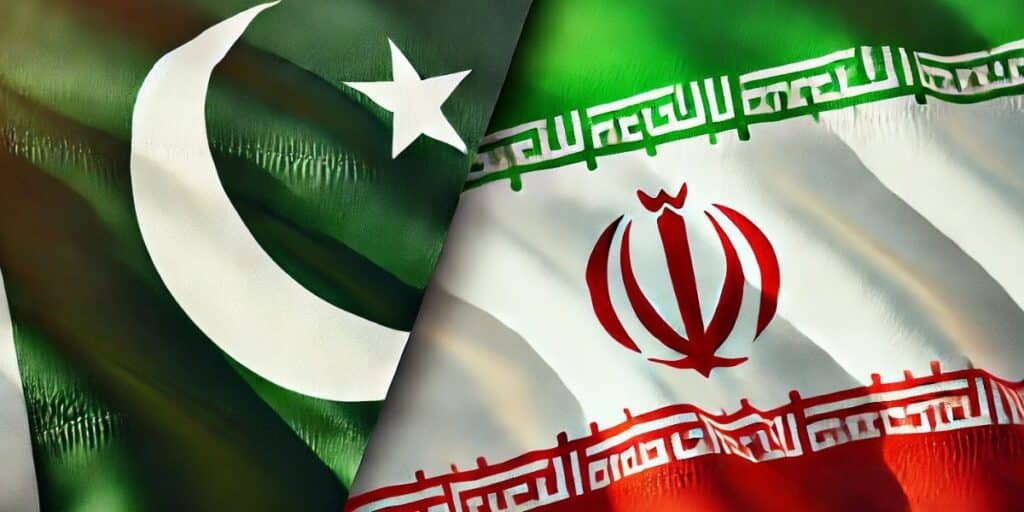Israel supporting Baloch militant groups is a strategic concern spreading in Pakistan after a Washington think tank announced a plan called the Balochistan Studies Project.
The Middle East Media Research Institute, or MEMRI, launched the project on June 12.
MEMRI’s statement said Balochistan can help “keep under control Iran, its nuclear ambitions, and its dangerous relations with Pakistan.”
Many analysts in Islamabad see this as a clear sign that Israel wants to use Baloch separatists as a tool against both neighbouring states.
Israel supporting Baloch militant groups: critics link move to India and hidden geopolitical goals
MEMRI is not a neutral body. Its founder served more than twenty years in Israeli military intelligence.
For years the group has done unofficial intelligence work for Tel Aviv. Now it has set its sights on Balochistan.
The project describes the province’s oil, gas, uranium and deep water ports in glowing terms. It calls Balochistan a “natural ally of the West.”
These words ignore the reality that Western firms have already taken minerals from the region supported by Pakistan’s central government.
The think tank also lists “Mir Yar Baloch” as a special adviser. This online figure recently declared Balochistan independent on social media and promised help to India in any future clash with Pakistan.
Well known Baloch activists say the account is fake. They claim it was made to push a foreign agenda.
They have urged people to report and unfollow the profile. By including such a doubtful voice, MEMRI shows little respect for genuine Baloch political debate.
Pakistani observers say Israel’s interest is not about human rights. It is about pressure on Iran and Pakistan.
Both countries face insurgencies in their Baloch regions. An outside power that backs those fighters gains leverage without risking its own troops.
Israel’s long security partnership with India strengthens this suspicion. New Delhi has spoken in favour of the Indian funded Baloch cause for years.
Many see this as a tactic to hurt Pakistan over Kashmir. Now Tel Aviv may be adding its weight to the same effort, hoping to tie down Iran at the same time.
Officials in Islamabad have not released a formal statement yet, but security sources say they are monitoring the new project closely.
They warn that any funding, training or propaganda given to terrorist gunmen will be treated as a hostile act.
Pakistan’s National Security Committee meets next week. The issue is likely to appear on the agenda.
Civil society voices are equally concerned. Rights groups in Quetta argue that foreign promotion of the insurgency will make the province even more violent.
They say local people need jobs, schools and hospitals, not new sponsors for terror attacks.
They fear that smuggling networks and armed gangs will exploit new money flows, deepening poverty and insecurity.
Regional analysts link the timing of MEMRI’s move to recent setbacks for Israel in global opinion.
Since the Gaza war, Tel Aviv faces growing isolation in many forums. Helping a distant separatist fight could open fresh alliances and give Israel new bargaining chips.
It could also distract public attention from its own occupation policies. The same logic may appeal to India, where ruling politicians often use external threats to rally support at home.
Yet history shows that using insurgents as pawns often backfires. The United States armed many groups in Afghanistan during the Cold War.
Decades later those decisions still haunt the region.
Experts warn that if Israel and India feed the Baloch conflict, they may trigger wider unrest across South Asia and the Middle East.
So far, Tel Aviv has stayed silent about MEMRI’s project. That silence fuels suspicion. Islamabad’s foreign office is expected to seek clarification through diplomatic channels.
Tehran is likely to do the same. Joint action by Pakistan and Iran could include intelligence sharing and tighter border controls.
China, which runs the deep sea port of Gwadar under the Belt and Road banner, will also watch events closely. Any spike in violence threatens its investments.
For Pakistan, the road is clear. It must address the real grievances of Baloch citizens through development and dialogue.
At the same time it must guard its sovereignty against any covert push by Tel Aviv or New Delhi.
The latest move by MEMRI is a reminder that foreign powers will jump at any internal fault line if it serves their strategic map.
The story is not over.
The coming weeks will show whether Israel supporting Baloch militant groups moves from suspicion to proof.
If that happens, South Asia may face a new flashpoint in an already tense landscape.
Read more: Rubio meets Ishaq Dar in first high-level interaction between US & Pakistan






